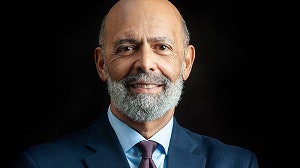Congress and the White House have agreed to provide $1 billion in emergency funds to historically Black colleges and universities (HBCUs), tribal colleges and universities (TCUs) and other minority serving institutions (MSIs) to help them cope with the coronavirus pandemic, said the United Negro College Fund (UNCF) in a statement on Wednesday.
The Thurgood Marshall College Fund (TMCF) said in a statement that the funding amounts to $1.05 billion.
Some Democratic senators and a host of advocates for HBCUs and MSIs, including the United Negro College Fund (UNCF), the Thurgood Marshall College Fund (TMCF), OCA-Asian Pacific American Advocates, the Hispanic Association of Colleges & Universities (HACU), the National Association For Equal Opportunity in Higher Education (NAFEO), and the American Indian Higher Education Consortium (AIHEC) have since last week been lobbying for $1.5 billion in emergency funds for HBCUs and MSIs, saying the costs related to dealing with coronavirus-related campus closures will break the backs of these historically underfunded institutions.
These colleges have to transition to online teaching, which involves huge investments in technology. They have to cover expenses for students from low-income families who have had to leave campus and return home. And they have to cover costs for those students whose circumstances prevent them from going home.
“The disruption of classroom-based education to transition to distance learning and even assisting some students with travel back home has put a tremendous unforeseen financial strain on institutions that have historically been underfunded,” said UNCF’s statement.
The funds for HBCUs and other MSIs are part of a $2 trillion federal coronavirus stimulus package – introduced in the Senate as the Coronavirus Aid, Relief, and Economic Security (CARES) Act – agreed on by Congress and the White House on Wednesday. Congress is yet to pass the legislation, but observers expect it will be passed and sent to President Trump for his signature.
“I call on the House and Senate to swiftly pass this legislation,” said Dr. Michael L. Lomax, UNCF’s president and CEO. “Also, let me be clear: the COVID-19 pandemic is hitting HBCUs hard. All emergencies that hit the higher education system seem to hit HBCUs harder because we serve mostly Pell Grant eligible students.”
 Dr. Michael Lomax
Dr. Michael LomaxBoth UNCF and the TMCF, in their statements Wednesday, said they appreciated that HBCUs’ and MSIs’ needs were taken into consideration.
“The deal developed by the Senate is another powerful example of the Congress’ recognition of the importance of and need to deliver for HBCUs, PBIs and their students,” said Dr. Harry L. Williams, TMCF’s president and CEO. “The road to full financial recovery from this crisis will be a long one for our schools, but the collective engagement and tireless bi-partisan advocacy of our community has helped to secure the much needed resources our schools require to both navigate this crisis and continue to pursue their respective missions.”
 Dr. Harry L. Williams
Dr. Harry L. WilliamsLast week, Senators Cory Booker (D-N.J.) and Doug Jones (D-AL) joined leaders of HBCUs, the UNCF and the TMCF in pressing Congress for emergency funds, saying the costs of operating during the coronavirus pandemic threaten MSIs’ future survival, a grim scenario for institutions that graduate the largest proportion of African American college graduates, low-income graduates and first-generation college students.
“We conveyed to Congress that the digital divide is very real on our campuses,” said Lodriguez V. Murray, UNCF senior vice president for public policy and government affairs, in a statement. “There is the need for distance education platforms, unfortunately some purchased under duress. Then, there are some students without either the proper technology or internet access in their homes. You add to that other scary propositions like loss of revenue, and you have a recipe which began to worry HBCU leaders.”
Sens. Booker and Jones, in a letter to Senate Majority Leader Mitch McConnell (R-KY), Senate Minority Leader Chuck Schumer (D-N.Y.) and Senate appropriators, said that HBCUs, Alaska Native and Native Hawaiian-Serving Institutions, Hispanic-Serving Institutions, Predominantly Black Institutions, Tribally Controlled Colleges and Universities, and Native American-Serving, Nontribal Institutions, serve some of our nation’s most promising, yet vulnerable students. Yet, they have smaller or no endowments, lower levels of federal funding and relatively fewer alumni donations compared to their majority counterparts.
They said the reason emergency funds for them are “needed now more than ever,” is because many of these institutions don’t have online learning and distance education embedded in their curriculum.
In his statement Wednesday, UNCF’s Lomax commended the senators for lobbying for them. He also lauded the efforts of Congresswoman Alma Adams, Congressional Black Caucus Chairwoman Karen Bass, House Education Committee Chairman Bobby Scott, House Majority Whip Jim Clyburn, Sens. Kamala Harris and Tim Scott and others who signed letters of support for additional resources during this health emergency.
“I want to thank the congressional leadership for responding to our call and the needs of HBCUs, and indeed the rest of the higher education community,” said Lomax.
This story has been updated.





















